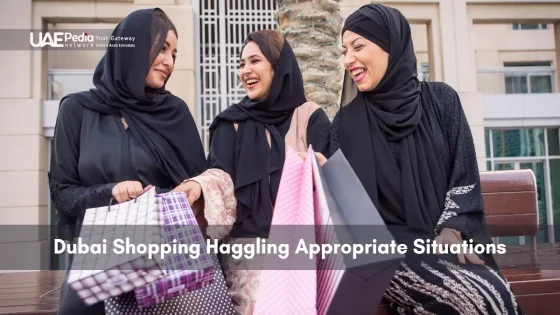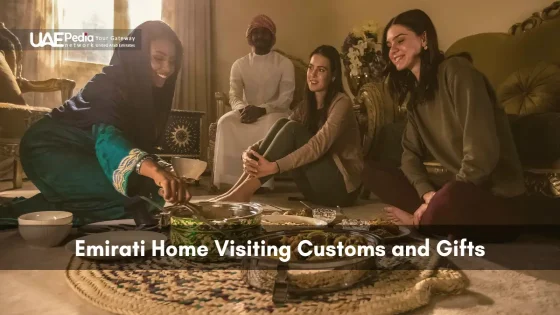What if getting the best deal wasn’t just about price—but about connection? In the UAE’s lively open-air markets, every exchange weaves centuries of tradition into modern-day interactions. Whether you’re eyeing handwoven textiles or intricate ceramics, understanding how to engage matters as much as what you buy.
This guide unlocks the rhythm of respectful bargaining—where to lean in, when to smile and step back, and how to turn transactions into cultural moments. We’ll share practical steps refined by generations of traders, like starting with a friendly greeting or using a beginner’s guide to haggling to gauge fair prices. You’ll learn why some stalls welcome playful banter while others stick to fixed tags.
Beyond saving dirhams, these exchanges become bridges. A shared laugh over tea, a vendor’s pride in explaining craftsmanship—it’s where trips transform from tours to stories. Ready to explore with confidence?
The UAE’s open-air markets integrate centuries-old trading customs with contemporary commerce by emphasizing relational engagement alongside price negotiation. Effective haggling begins with respectful cultural protocols—using basic Arabic greetings, observing vendor readiness cues and employing nonverbal signals—to establish rapport. Market dynamics vary by location and time: traditional souks welcome bargaining, whereas malls and high-end boutiques enforce fixed pricing. Seasonal fluctuations, peak hours (8–10 AM, 4–6 PM) and cash payments influence discount ranges, which typically span 30 – 50 percent in spice and textile quarters and 15 – 25 percent in the Gold Souk.
Practical negotiation steps include researching average market rates, initiating offers at 30 – 50 percent below listed prices and bundling multiple items for volume discounts. Polite persistence—smiling, offering compliments on craftsmanship and demonstrating budget constraints—can yield incremental concessions, while strategic withdrawal often prompts vendors to present improved terms. Recording target prices and walking away at set thresholds ensures disciplined decision-making. By adhering to these protocols, buyers achieve both cost savings and culturally meaningful exchanges that reinforce the authenticity of the Dubai haggling experience.
Key takeaways:
- Bargaining thrives in traditional markets but skips malls or luxury boutiques.
- Research common prices and aim for 30-50% discounts through polite persistence.
- Walking away can sometimes secure better offers—or reveal items not worth the push.
Discovering the Vibrant World of Dubai Markets
Markets here aren’t just places to buy—they’re stages where heritage dances with daily life. Wander through narrow alleys, and you’ll find saffron threads glowing like sunset and silk scarves fluttering in the breeze. Every corner hums with the rhythm of age-old exchanges—vendors sipping cardamom coffee, artisans polishing silver, and laughter echoing under woven palm roofs. To navigate this maze like a pro, a little research goes a long way. Peek at local tips for exploring souks to decode hidden gems and vendor expectations.
Understanding the Unique Atmosphere
Step into the spice quarter, and your senses ignite. Cinnamon sticks tower like miniature skyscrapers, while turmeric dust paints the air gold. Vendors call out in melodic Arabic, offering dates stuffed with almonds or vials of oud perfume. It’s chaos with a heartbeat—a place where bartering isn’t just expected, it’s celebrated as part of the dance.
Nearby, textile lanes burst with rainbow silks and embroidered abayas. A tailor might beckon you closer, unfurling fabric with a storyteller’s flair. ‘This pattern,’ he’ll say, tracing threads with pride, ‘comes from my grandfather’s village.’ These moments turn transactions into time travel.
The Role of Tradition and Culture
These markets are living museums, their traditions etched into every interaction. Haggling isn’t a battle here—it’s a ritual. Start too low, and a vendor might clutch their chest in mock horror before countering with a grin. Knowledge is power: knowing average prices for saffron or pashmina shawls helps you negotiate with confidence.
One trader shares, ‘My father taught me to read a customer’s eyes, not their wallet.’ That wisdom fuels deals sealed with handshakes and shared mint tea. By honoring these customs, you’re not just buying a souvenir—you’re keeping stories alive for the next generation.
Read More:
Embracing the Spirit of Bargaining in Dubai
In the heart of bustling markets, every price tag hides a story waiting to unfold through conversation. For centuries, traders here have turned transactions into art—a dance where respect meets persistence. Want to master the rhythm? Let’s dive in.
Historical Roots of the Negotiation Dance
Long before skyscrapers dotted the skyline, merchants gathered under desert stars to barter spices, pearls, and stories. One textile vendor recalls, “My grandfather traded camels for silk—he’d spend hours sharing tea before naming a price.” This tradition lives on. Sellers today still value rapport over rushed deals.
Social Grace: The Secret Sauce
Start with a warm “As-salamu alaykum” (peace be upon you), and watch shoulders relax. A spice seller once shared, “If a customer jokes about my saffron being worth its weight in gold, I’ll knock 10% off—just for the laugh.” But know when to walk away. One traveler secured a 40% discount on silver jewelry by thanking the seller and slowly stepping back—twice.
| Vendor Type | Approach | Buyer Strategy |
|---|---|---|
| Textile Traders | Share fabric origins | Ask about weaving techniques first |
| Spice Sellers | Offer taste tests | Compare batch quality openly |
| Gold Merchants | Discuss craftsmanship | Mention competitor prices politely |
Three key tips from seasoned hagglers:
- Smile often—it’s harder to say no to someone who radiates joy
- Bundle items for group discounts (“I’ll take these three scarves if…”)
- End with a handshake—it signals mutual respect, even if you walk away
These exchanges aren’t just about dirhams—they’re gateways to human connection. Ready to transform market visits into unique adventures? Your next unforgettable deal awaits.
Key Dubai Shopping Haggling Appropriate Situations for Savvy Shoppers
Navigating the lively markets here feels like decoding a treasure map—each alley holds potential gems for those who know where to look. Let’s explore the spots where your bargaining skills become superpowers.
Spotting Prime Bargaining Grounds
The glittering lanes of the Gold Souk aren’t just about bling—they’re negotiation bootcamps. One vendor confides, “Morning regulars often get better rates—we’re fresh and aiming to start strong.” Spice stalls nearby reward cash-ready buyers with discounts up to 40%, as credit card fees eat into slim margins.
| Market | Peak Hours | Cash Discount Range | Strategy |
|---|---|---|---|
| Gold Souk | 10 AM – 1 PM | 15-25% | Compare gram weights first |
| Spice Market | 4 PM – 7 PM | 30-50% | Request fresh batch samples |
| Naif Souk | Weekday evenings | 40-60% | Bundle 3+ items |
Timing Your Tactics
Watch for subtle cues—a seller rearranging goods might signal readiness to deal. At Naif Souk, starting at 50% below asking price often lands you near fair value. As one traveler shared:
“I scored hand-stitched pillows by joking, ‘Your tea’s so good, I’ll need these to stay awake!’ He laughed and dropped the price.”
Weekday mornings see fewer crowds, letting vendors focus on serious buyers. Evening visits? Perfect for leveraging end-of-day targets. Cash whispers flexibility—pull bills slowly, and watch eyes light up.
Timing Your Negotiations for Maximum Savings
Timing isn’t just a strategy—it’s the heartbeat of every successful market exchange. Arrive too early, and vendors might still be brewing their karak chai. Come too late, and the best deals could’ve already walked away with someone else. Let’s crack the code of when to strike for the sweetest bargains.
Ideal Hours: Mornings and Late Afternoons
Dawn’s first light paints the souks in gold—and savvy buyers know this is prime time. One textile seller shares: “Early birds catch fresh stock and my best mood. After lunch? Let’s just say the heat makes discounts melt faster.” Late afternoons offer another window as vendors aim to hit daily targets. Quieter crowds mean more personalized attention—and room to negotiate.
| Timeframe | Crowd Level | Discount Range | Pro Tip |
|---|---|---|---|
| 8–10 AM | Low | 25–40% | Mention competitor prices casually |
| 4–6 PM | Moderate | 30–50% | Bundle items for group rates |
| 7–9 PM | High | 10–25% | Focus on last-minute clearance items |
Seasonal Peaks and Off-Peak Opportunities
Summer’s scorching months (June–August) thin crowds but heat up discounts—vendors may slash prices by 50% to lure buyers. Winter’s tourist rush? Expect fewer deals but livelier atmospheres. Set a clear budget before entering, and stick to it when seasonal hype tempts overspending.
One traveler’s hack: Visit during Ramadan evenings. “Sellers often prioritize kindness over profits,” she recalls, “I secured a silver necklace at cost after sharing iftar dates.” Adapt your approach—patience in peak times, boldness in off-seasons—and watch savings stack up while memories deepen.
Essential Bargaining Strategies for Better Deals
Think of bargaining as a dance—not a duel. The best deals emerge when you blend warmth with strategy. We’ve watched seasoned buyers turn transactions into win-win moments by mastering two core moves: connection first, clarity always.
Starting with a Friendly Greeting
A simple “Sabah al-khair” (good morning) works like a secret handshake. One spice vendor shared: “When customers greet me in Arabic, I’ll toss in free za’atar—it’s respect, you know?” Smile while naming your initial offer. This softens the ask, making sellers more receptive to counteroffers.
Setting Your Budget and Knowing When to Walk Away
Carry cash in small bills and decide your ceiling before touching that embroidered pillow. A traveler at the Gold Souk revealed her trick: “I write prices on my phone’s notes app. When sellers see the list, they realize I’m tracking averages.”
| Item Type | Budget Tip | Walk-Away Signal |
|---|---|---|
| Handmade ceramics | Allocate 20% extra for customization | Seller refuses to explain clay sources |
| Silk scarves | Compare thread counts silently | Price exceeds online retailers by 40%+ |
Three tactics to secure best deals:
- Bundle items early: “I’ll take these two lamps if…” often unlocks 15% discounts
- Praise craftsmanship before discussing numbers—builds goodwill
- Exit slowly after a rejected offer; 30% of sellers call back with better terms
Remember: Every “no” teaches you to pivot. Yesterday’s walked-away deal becomes tomorrow’s steal—with sharper skills and brighter smiles.
Leveraging Insider Tips and Local Insights
The secret to scoring the perfect find isn’t just luck—it’s strategy woven with local wisdom. Arm yourself with knowledge, and watch market interactions shift from daunting to delightful.
Conducting Pre-Visit Research
Savvy explorers start their journey online. Scan forums like Reddit’s r/dubaiconnect for recent price benchmarks. One traveler shared: “TripAdvisor reviews tipped me off about a textile shop giving free tea samples—that warmth led to 35% off silk throws.” Bookmark Google Maps pins for top-rated spots tagged “local favorite” in comments.
| Research Tool | Key Insight | Pro Tip |
|---|---|---|
| Social Media Polls | Reveal trending shops | Ask: “Best place for handmade ceramics under 200 AED?” |
| Blog Comments | Highlight seller reputations | Search for phrases like “fair negotiation” or “patient vendor” |
| YouTube Vlogs | Show real-time interactions | Note how sellers respond to polite counteroffers |
Understanding Seller Behavior and Market Trends
Vendors often adjust prices based on foot traffic and inventory. A rug merchant confessed: “If I’ve got duplicates, I’ll drop rates faster—clearing space matters more than margins.” Track seasonal shifts too; gold prices dip during summer lulls, while spice stalls stock premium saffron before Ramadan.
Utilizing Reviews and Local Recommendations
Word-of-mouth gems hide in plain sight. Join expat Facebook groups asking: “Which sellers enjoy creative banter?” or “Shops with flexible bundle deals?” A food blogger’s advice paid off for one visitor:
“A café owner whispered about a back-alley pottery studio—I snagged a vase at half the tourist price!”
Three quick wins from seasoned bargainers:
- Screen capture prices from shop websites—use as reference during talks
- Note vendor names mentioned positively in reviews (“Ask for Ahmed!”)
- Arrive 30 minutes before closing for “last sale” energy
Navigating Language Barriers and Cultural Nuances
Ever walked into a conversation where words fail but smiles speak volumes? Markets thrive on this dance of gestures and glances—a universal dialect that bridges gaps. Here’s how to master it.
Using Basic Arabic Phrases Effectively
“Kam hatha?” (How much?) works like a golden key. One textile vendor admits: “When visitors try Arabic, I lower prices automatically—it shows effort.” Start with greetings like “Marhaba” (Hello) or praise goods with “Mashallah” (God has willed it). These phrases build trust faster than calculators.
Watch sellers light up when you ask “Hal mumkin tukhaffif al-thaman?” (Can you reduce the price?). A tourist shared: “I saved 100 AED on a lamp just by smiling and saying ‘shukran’ after each counteroffer.”
Employing Non-Verbal Communication and Gestures
Palms up with a shrug says “too expensive” without words. Touching your heart after a handshake conveys sincerity. One ceramics trader revealed: “If a buyer steps back but keeps eye contact, I’ll chase them with my final price.”
| Gesture | Meaning | Response |
|---|---|---|
| Hand over heart | Genuine interest | Vendor may offer tea |
| Tapping wrist | Time-sensitive deal | Counter quickly |
| Slow head shake | Firm price | Politely exit |
Body language leaks clues. Lean slightly forward to show engagement, but avoid pointing—it’s considered rude. A traveler scored a better deal on leather bags by mimicking the seller’s hand motions while laughing. Shared laughter became their common dialect.
Clear communication turns tricky exchanges into smooth transactions. Remember: patience and playful gestures often unlock prices words alone can’t reach. Your next item awaits—armed with phrases and smiles, you’re ready to connect beyond language.
Exploring Specialized Markets and Souks
Imagine a labyrinth where gleaming treasures whisper tales of ancient trade routes. The UAE’s specialized markets blend centuries-old craftsmanship with modern flair—each souk a universe of its own. Let’s uncover two iconic hubs where artistry meets opportunity.
Insights into the Gold Souk’s Bargaining Scene
Sunlight bounces off necklaces so intricate, they look like frozen lace. A vendor adjusts a 22-karat bracelet, explaining: “Gold here isn’t just sold—it’s performed. The first offer is the overture; your counter is the chorus.” Prices swing based on global rates, but skill determines your finale. Locals suggest starting at 20% below asking, then meeting halfway after friendly banter.
| Item | Average Rate (AED/g) | Negotiation Tip |
|---|---|---|
| 24K Bangles | 220–240 | Compare weight certificates first |
| Diamond Earrings | +30% making charge | Request breakdown of stone vs. labor costs |
One traveler secured a vintage pendant by admiring its filigree for five minutes before discussing numbers. Patience pays—literally.
Discovering the Spice and Textile Souks
Step into a kaleidoscope of crimson sumac and emerald cardamom pods. A spice merchant offers a taste of saffron-soaked coffee, grinning: “This batch? Harvested under a full moon—extra magic.” Nearby, silk cascades like liquid rainbows. Textile traders often lower rates if you ask about dye techniques or weave origins.
| Souk | Signature Find | Price Strategy |
|---|---|---|
| Spice | Organic oud oil | Buy larger quantities for 35% discounts |
| Textile | Hand-block printed cotton | Bundle 3 meters for “wholesale” rates |
Pro tip: Sellers respect buyers who recognize quality. Sniff cinnamon sticks for freshness or rub fabric between fingers to test durability. Your curiosity becomes currency.
These markets aren’t mere stops—they’re portals to the region’s soul. Whether you’re weighing grams of gold or grams of saffron, every exchange echoes the rhythm of a world shaped by barter and trust.
Wrapping Up Your Successful Dubai Market Experience
Every market memory starts with a smile and a story. Whether you’re sipping cardamom coffee with a vendor or mastering the art of the counteroffer, these moments become souvenirs richer than any purchase. Three golden rules from our adventures: time your visits like a pro, let curiosity guide your questions, and always carry small bills for those irresistible “last price” wins.
Treat each trip as a classroom. Maybe you’ll learn that golden hour isn’t just for photos—it’s when sellers chase daily targets. Or discover how praising a rug’s weave unlocks rates you’d never see at home. Every interaction sharpens your instincts, helping you get better deals next time.
Share these wins! Text a friend that spice stall location or post your haggling hack online. Markets thrive when knowledge flows freely—your tips might spark someone’s perfect treasure hunt.
Bookmark this guide for your next visit, whether you’re exploring a new place or returning to favorite lanes. With cultural respect as your compass and these strategies in hand, you’re not just buying goods—you’re collecting stories worth retelling at home.
Haggling thrives in traditional souks like the Gold Souk or Spice Souk, but it’s less common in malls or fixed-price stores. Always check the vibe—if prices aren’t tagged, negotiation is fair game!
Begin with a warm "As-salam alaykum" (peace be upon you) and smile. Sellers appreciate respect—ask questions about craftsmanship before discussing numbers. It builds rapport!
Start by offering 30-40% below the asking price, then meet halfway. In gold markets, compare daily rates online first. Cash payments often unlock better deals than cards.
Fixed-price tech, luxury brands, or government-run stores avoid bargaining. But for carpets, spices, or handmade jewelry? Sharpen those negotiation skills!
Absolutely! Politely say "Shukran" (thank you) and head to another stall. Often, sellers will call you back with a better offer—patience pays off.
Even basic phrases like "Kam al-thaman?" (What’s the price?) earn goodwill. Pair it with humor—sellers love when visitors embrace local culture!
Yes! Vendors near closing time (around 4-6 PM) may lower prices to meet daily targets. Avoid Friday mornings when markets are busiest.
Look for the Emirates Authority stamp (like "916" for 22K). Reputable shops display certification—ask for receipts and verify weight against global rates.

















